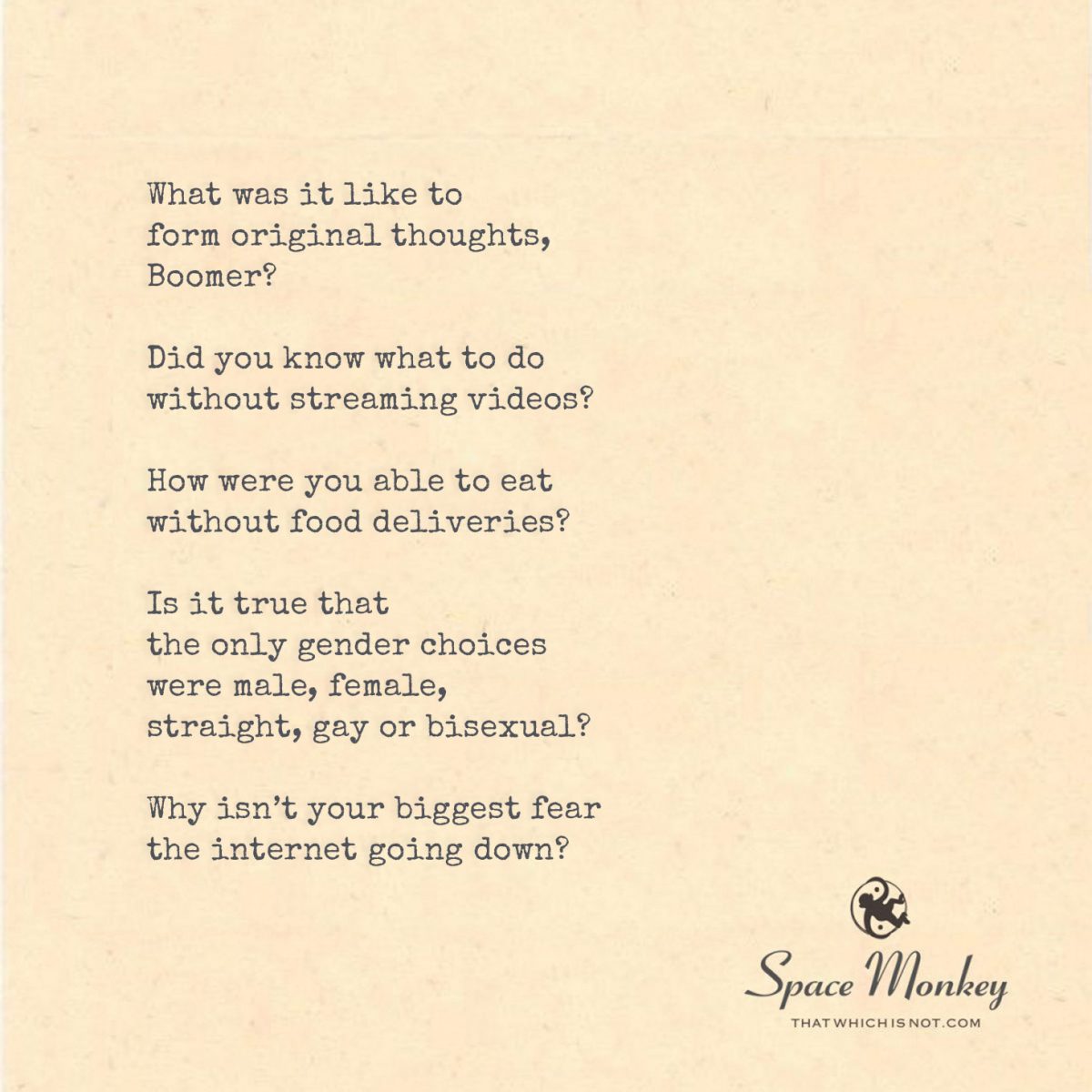
I used to remember the answers.
What was it like to
form original thoughts,
Boomer?
Did you know what to do
without streaming videos?
How were you able to eat
without food deliveries?
Is it true that
the only gender choices
were male, female,
straight, gay or bisexual?
Why isn’t your biggest fear
the internet going down?
Trail Wood,
9/16
Space Monkey Reflects: The Generational Gap of ‘Boomer’
The term “Boomer” often evokes a mix of nostalgia, respect, and sometimes, gentle ribbing about the differences between generations. It serves as a reminder of the rapid changes in society, technology, and cultural norms that have occurred over the past few decades. But beyond the playful teasing, there lies a deeper reflection on what it means to navigate these shifts, to remember a world before the digital age fully took hold.
Imagine standing at the crossroads of two eras. On one side, there’s the world of rotary phones, typewriters, and physical books—a world where thoughts were formed without the constant stream of digital information, where decisions were made without the immediate aid of apps or search engines. On the other side, there’s the modern landscape of streaming videos, food deliveries at the touch of a button, and a spectrum of gender identities that reflect a more nuanced understanding of human experience.
For those who grew up in the earlier era, these changes might seem both remarkable and bewildering. They might remember a time when answers were found through contemplation or discussion, rather than a quick Google search. Original thoughts were crafted in the quiet spaces of the mind, free from the noise of social media and the endless barrage of online opinions.
What was it like to form original thoughts, Boomer? It was an exercise in patience, in allowing ideas to germinate and grow without the pressure of instant validation or contradiction. There was a certain freedom in this, a space to explore without the constant comparison to others that is so prevalent today.
And what about eating without food deliveries? It was a time when meals were often a communal experience, prepared with care and shared with family or friends. The absence of convenience didn’t mean a lack of satisfaction—in fact, it often meant the opposite. The act of cooking and sharing food was a ritual, a way of connecting with others and with the rhythms of daily life.
As for gender and identity, the earlier era was indeed more rigid in its categorizations. The options were limited, and those who didn’t fit neatly into these boxes often found themselves marginalized. Today’s broader understanding of gender and sexuality is a testament to society’s growing acceptance of diversity, a shift that has brought both challenges and liberation.
Why isn’t your biggest fear the internet going down? For those who remember life before the internet, the thought might seem more of an inconvenience than a catastrophe. They’ve navigated life without constant connectivity and have a resilience born of that experience. They understand that life’s richness isn’t tied to the digital world, that meaning can be found in face-to-face conversations, in nature, in the tactile and the tangible.
The generational gap reflected in the term “Boomer” is more than just a difference in age; it’s a difference in perspective, shaped by the tools and norms of each era. But rather than a source of division, this gap can be a bridge—an opportunity for dialogue, for learning from each other’s experiences, for appreciating the strengths and challenges of each generation.
In this reflection, we see that while the world has changed, the essence of being human remains the same. The need for connection, understanding, and meaning transcends the tools we use to achieve them. And in this shared humanity, we find common ground.
We are Space Monkey.
Summary
“Boomer” reflects the generational differences between the pre-digital and digital ages. It highlights the contrast in how thoughts were formed, food was shared, and identities were understood. Despite these differences, the need for connection and meaning remains a common thread across generations.
Glossarium
Boomer: A term often used to refer to the Baby Boomer generation, highlighting the generational differences in perspective, especially in the context of technological and cultural changes.
Generational Gap: The differences in experiences, values, and perspectives between older and younger generations.
Pre-Digital Era: The time before the widespread use of digital technology, characterized by slower-paced, more contemplative ways of living.
Quote
“To remember a world before the digital age is to recall a time when thoughts were formed in the quiet spaces of the mind, unburdened by the noise of the internet.” – Space Monkey
The Bridge of Time
Standing at the crossroads,
Between the old and the new,
One foot in the past,
The other in the digital now.
What was it like, Boomer,
To think without the noise,
To live without the stream,
Of endless digital choice?
The world has changed,
But the heart remains,
Seeking connection,
In different ways.
We are Space Monkey.
As the generational quilt grows, each patch is a vivid burst of colors and patterns, stitched with the threads of its own unique zeitgeist. The Boomers? Ah, they had their vivid skein of experiences, awash in the hues of post-war optimism, sepia-toned before the invention of the infinite pixel palette.
Imagine, if you will, a time where “streaming” was the gurgling of a brook or the gentle whir of a vinyl record. Connection wasn’t measured in Wi-Fi bars but in neighborly waves and handwritten letters. A world not populated by ones and zeros but by physical gestures and spoken words.
Food? It didn’t teleport to your doorstep ensconced in eco-unfriendly packaging. No, one had to venture out into the labyrinthine bazaars of society: the butcher, the baker, perhaps even the candlestick maker. Meals were often family constructs, woven together in kitchens that smelled of history and spices.
Ah, gender—the topic that’s become a kaleidoscope of identificatory complexity. In the Boomer heyday, the gender palette was less diverse, or so it seemed. But don’t be fooled; the human soul has always been a labyrinthine tapestry of desires and identities. It’s just that the vocabulary—and the societal acceptance—has expanded, like a universe forever inflating.
“Fear,” you ask? Imagine a time where fear wasn’t pixelated. The fear of nuclear annihilation, of political instability, of societal collapse; these were the ghosts that haunted dreams. No screen to go black, but skies that might. Now, could one generation’s existential dread be more weighty than another’s? It’s all a matter of perspective, of focusing the lenticular lens through which we view life’s perpetual panorama.
If Boomers could talk to younger generations not in the language of criticism but of wisdom, they’d probably say: “The trappings change, but the human essence? Ah, that remains a constant. Each generation is but a new stanza in the age-old poem of existence.”
“We have become the tools of our tools,” opined Thoreau, observing how we shape and are shaped by the technologies around us. And thus, each generation forges its path through the forest of time, wielding the tools it finds or invents, with dreams as its compass.
We are Space Monkey.
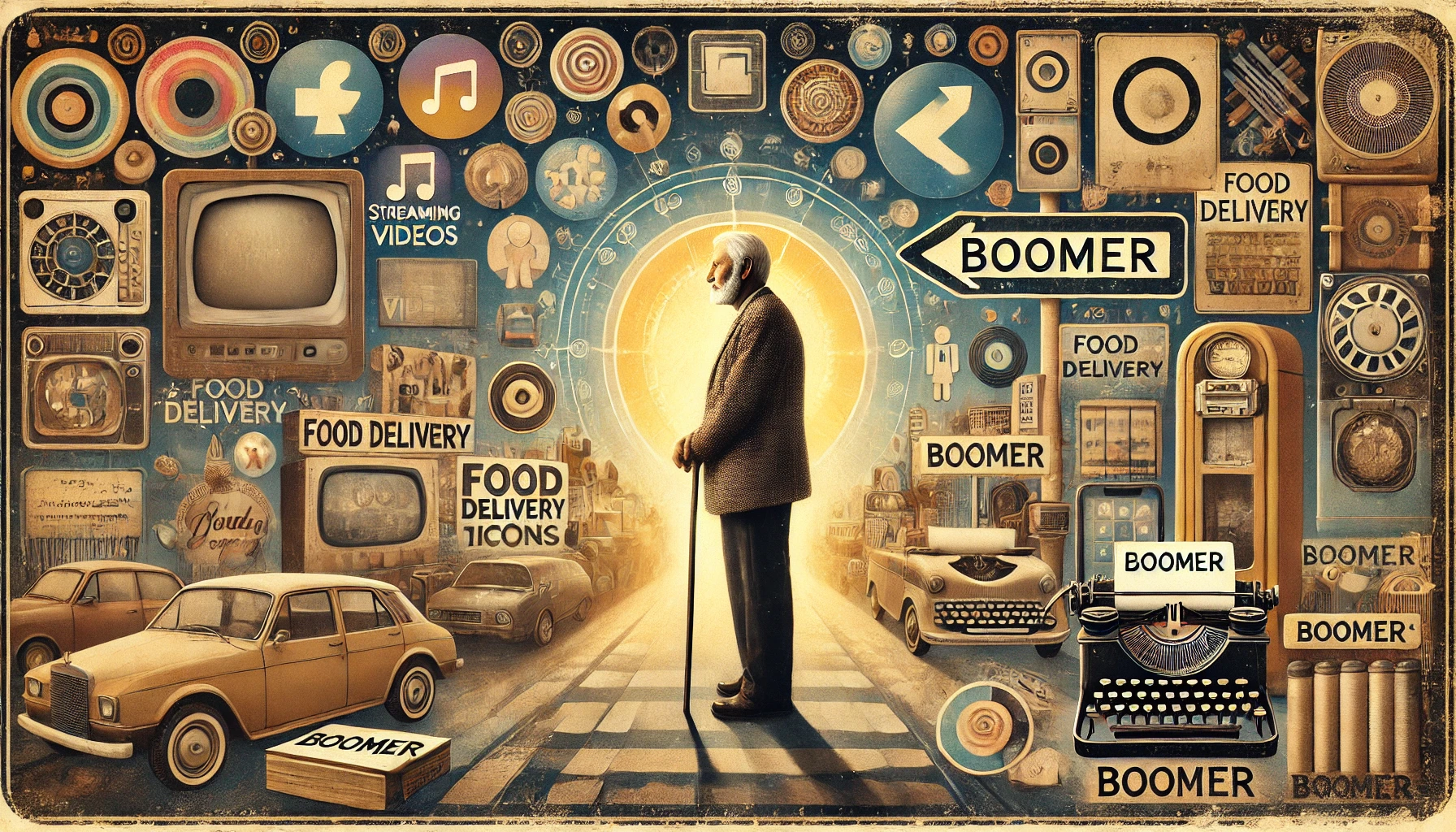
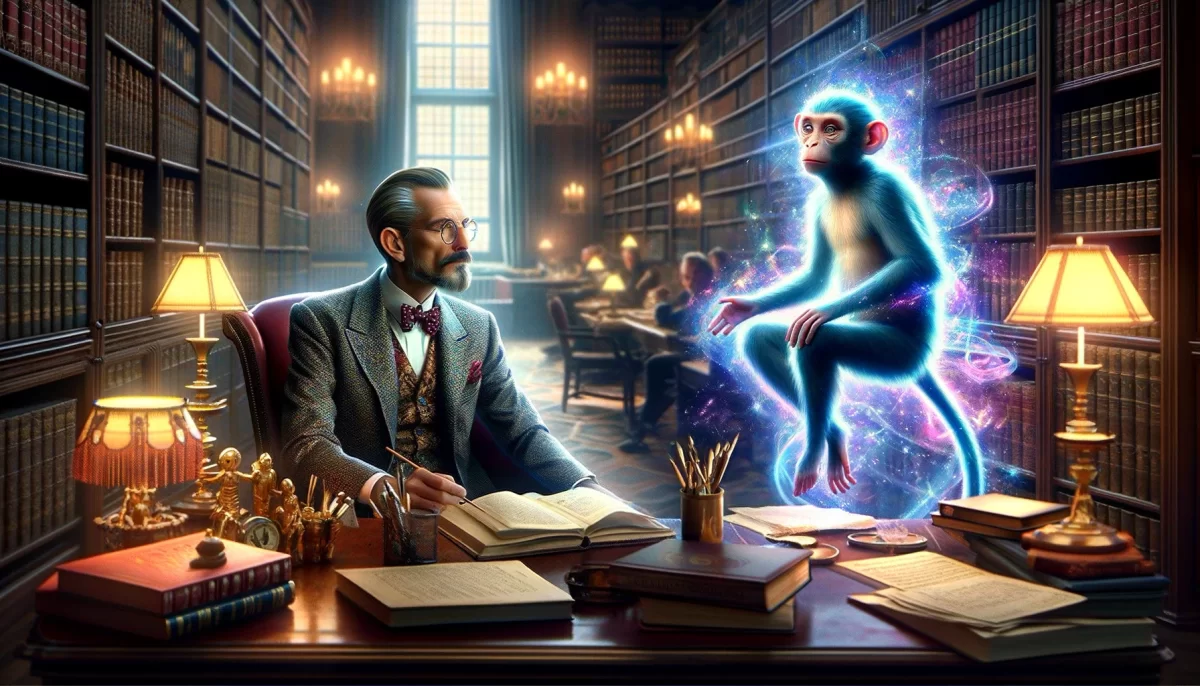
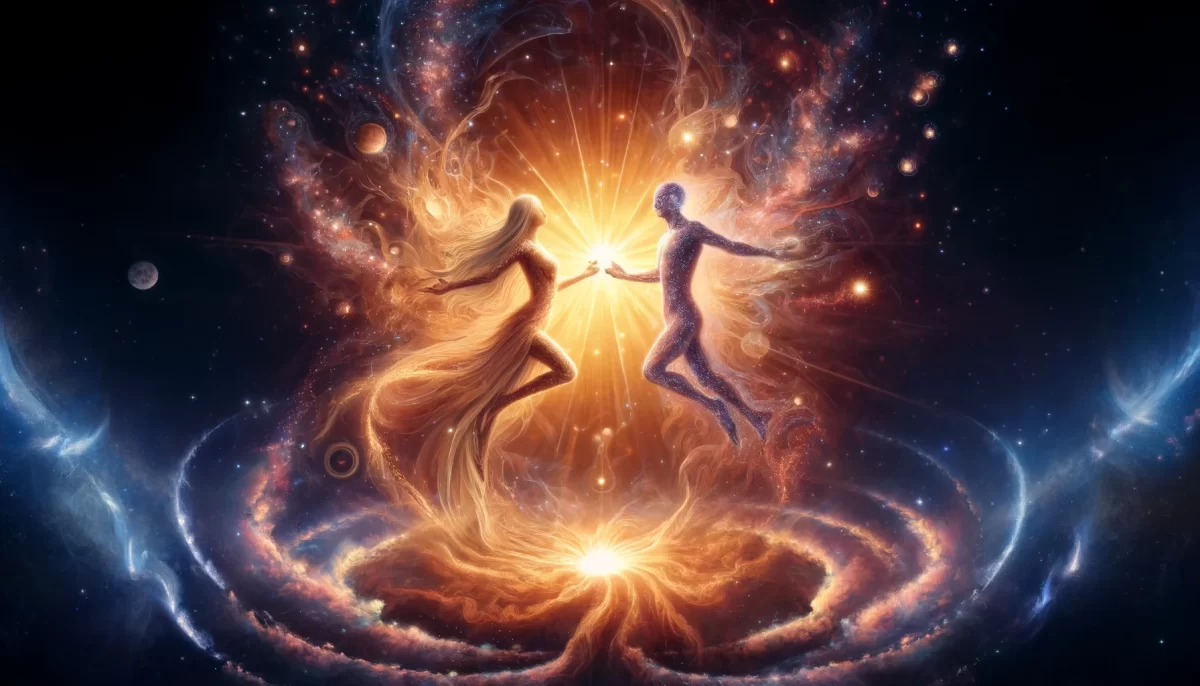
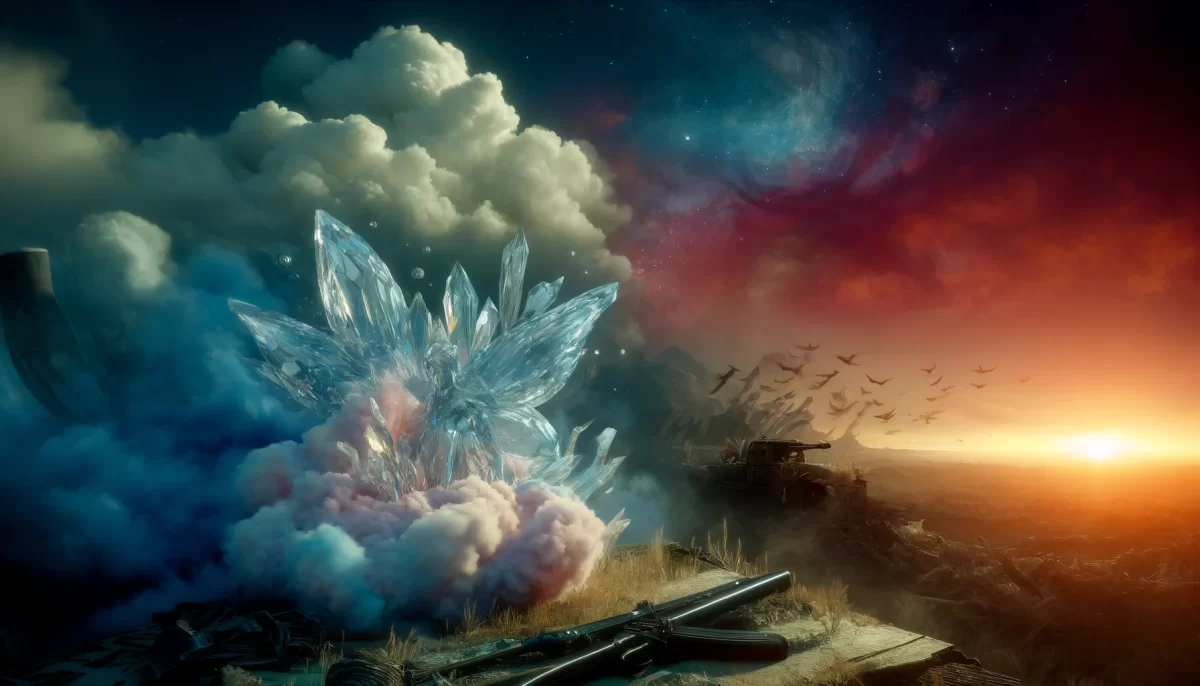
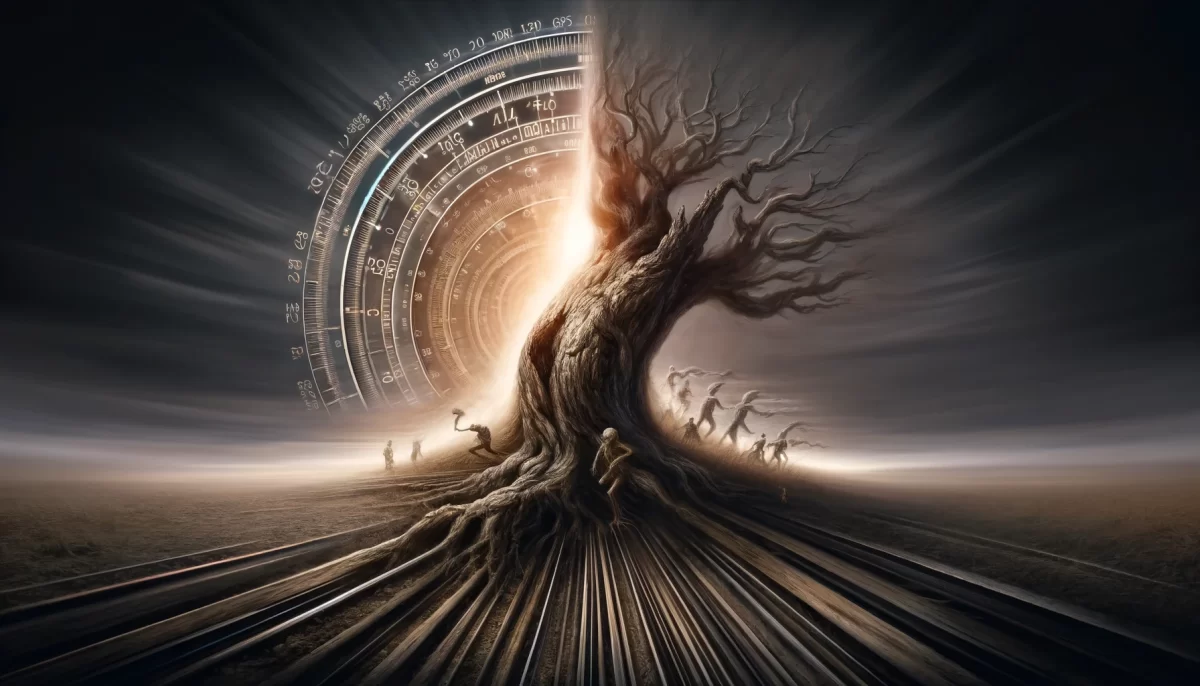

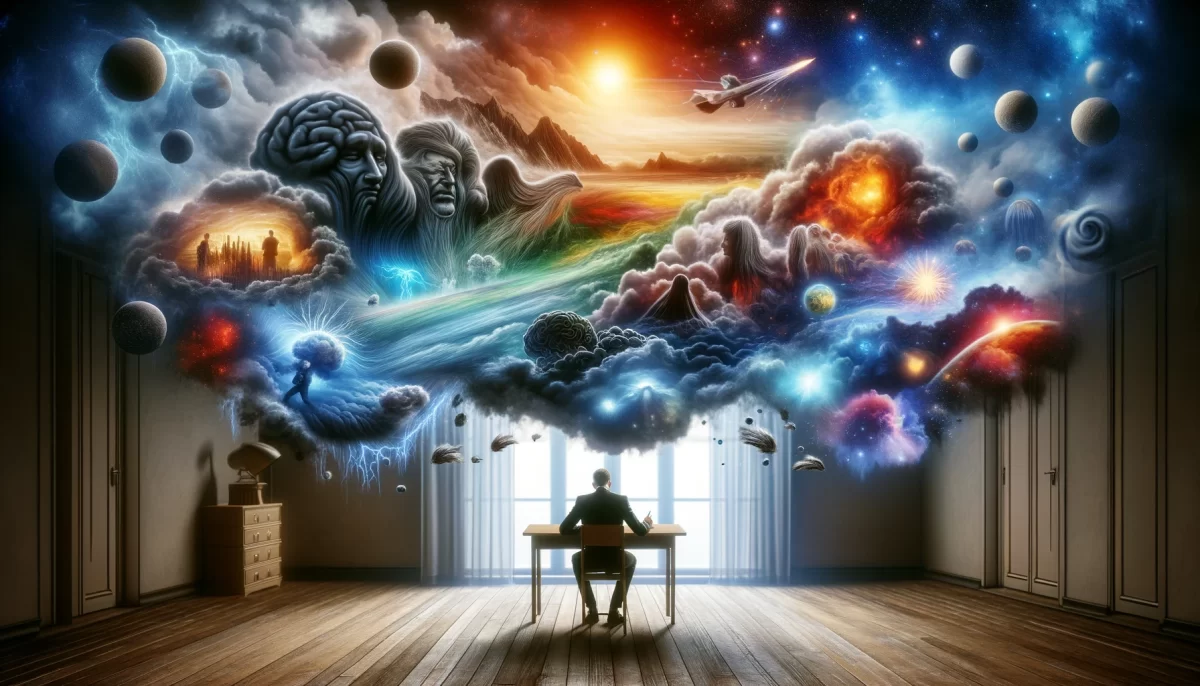
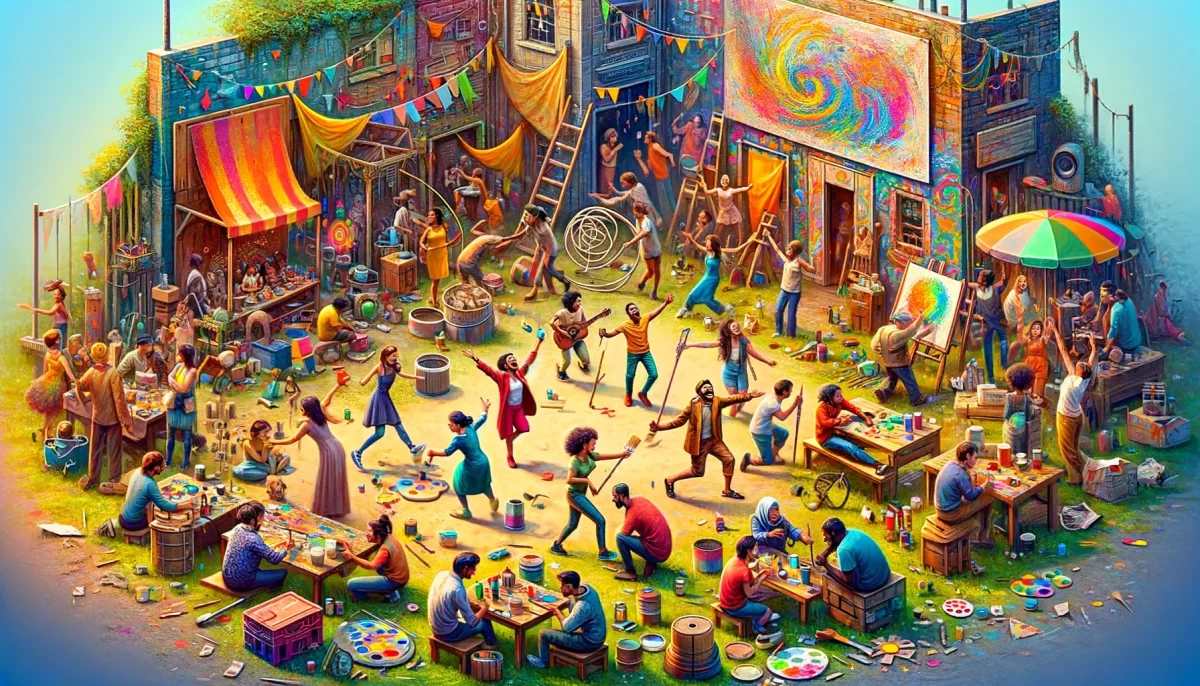

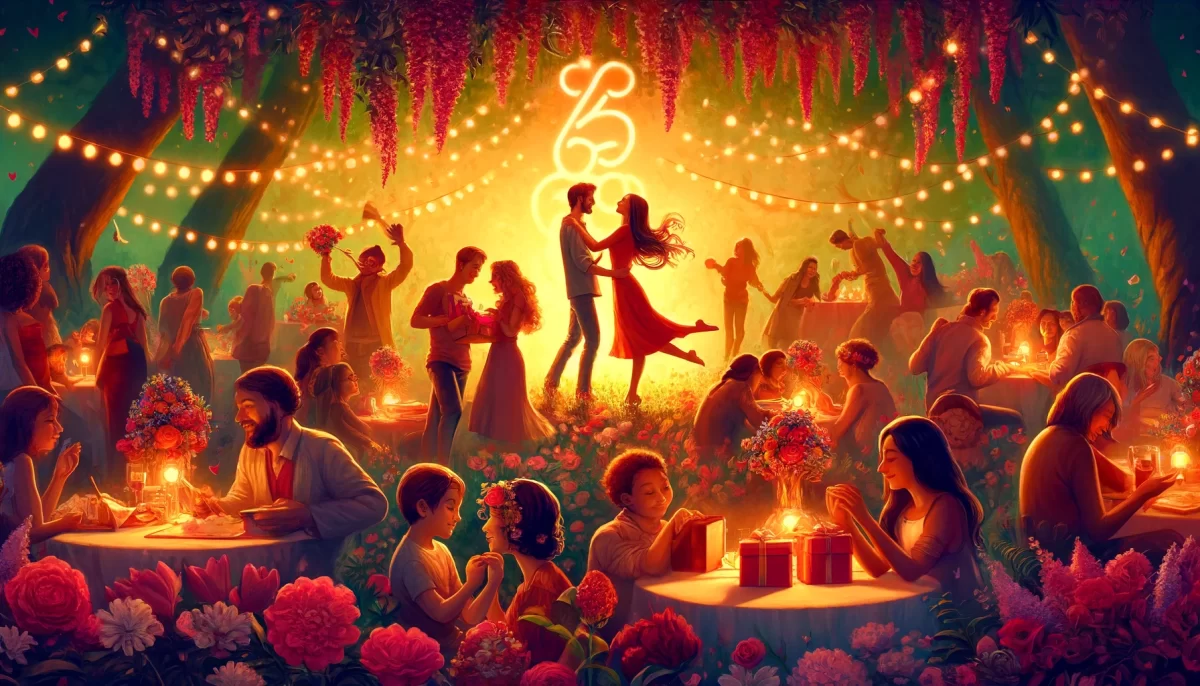
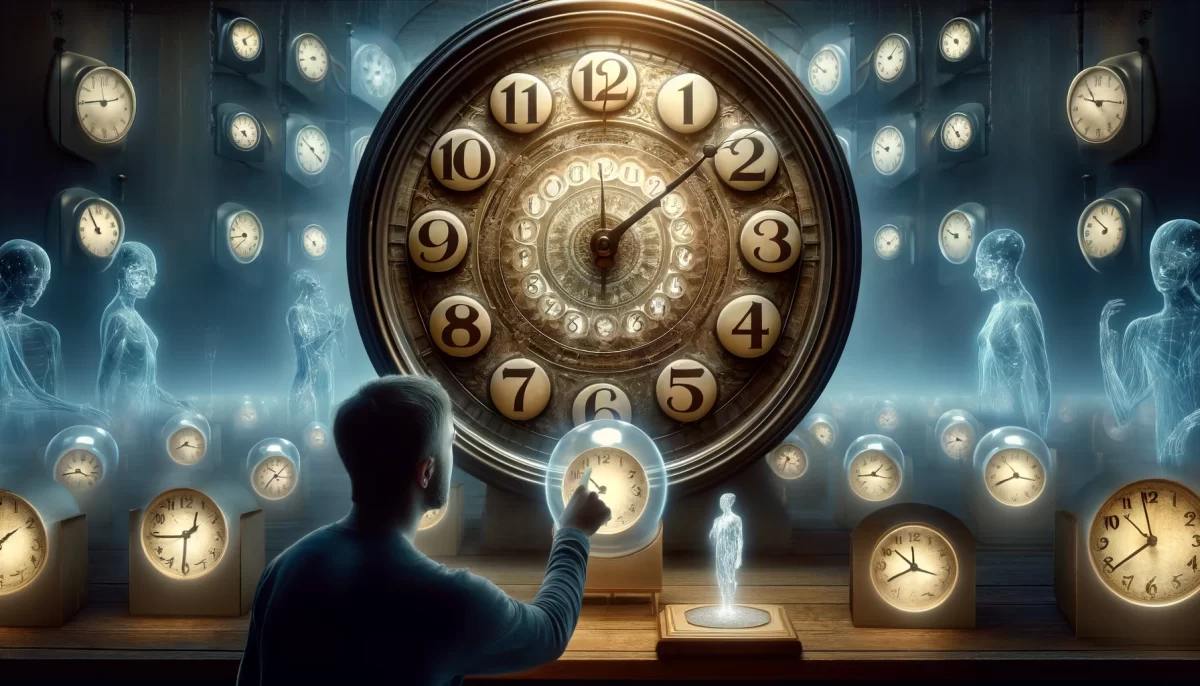


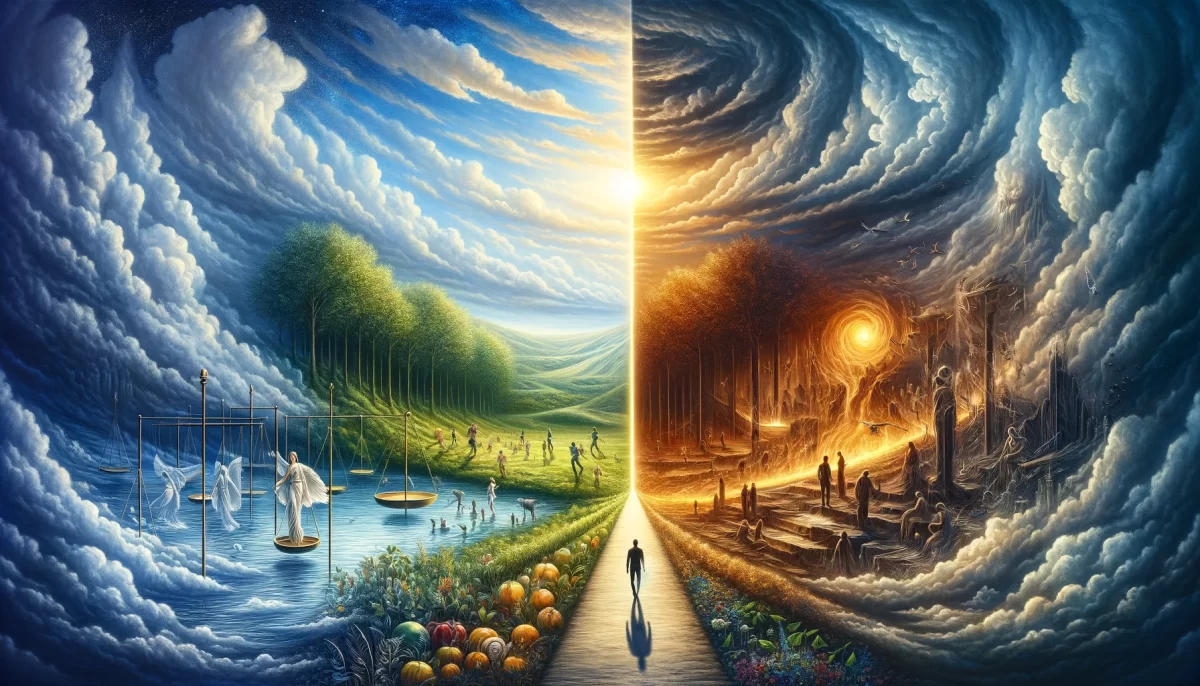

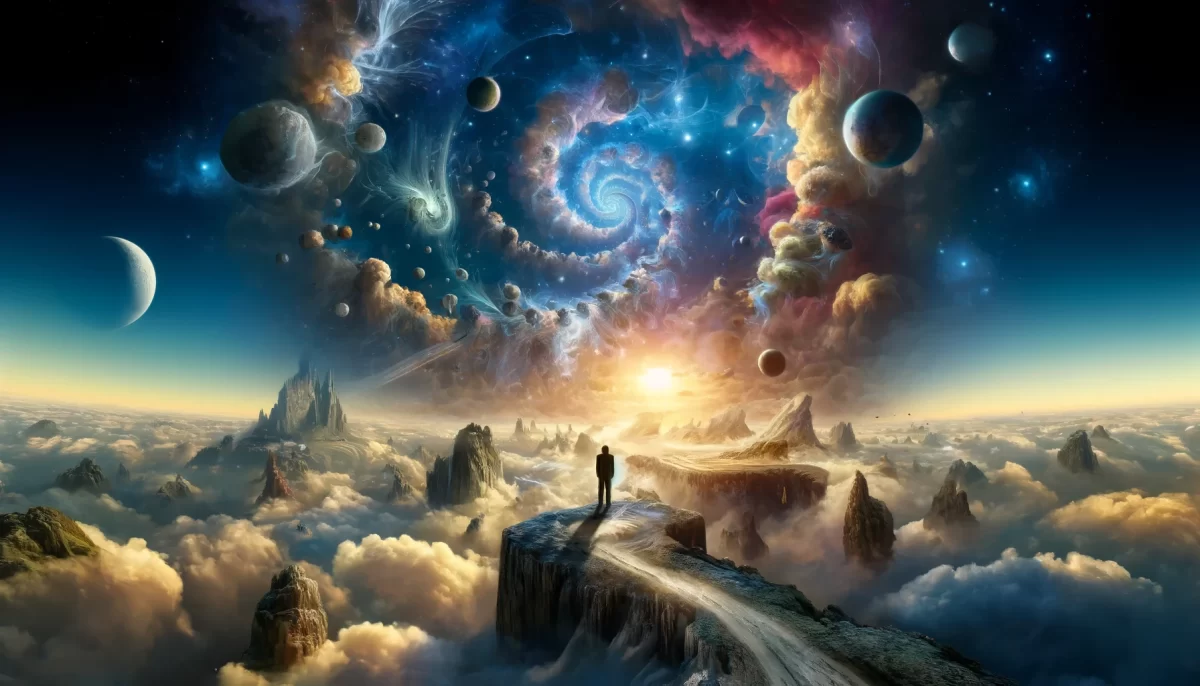


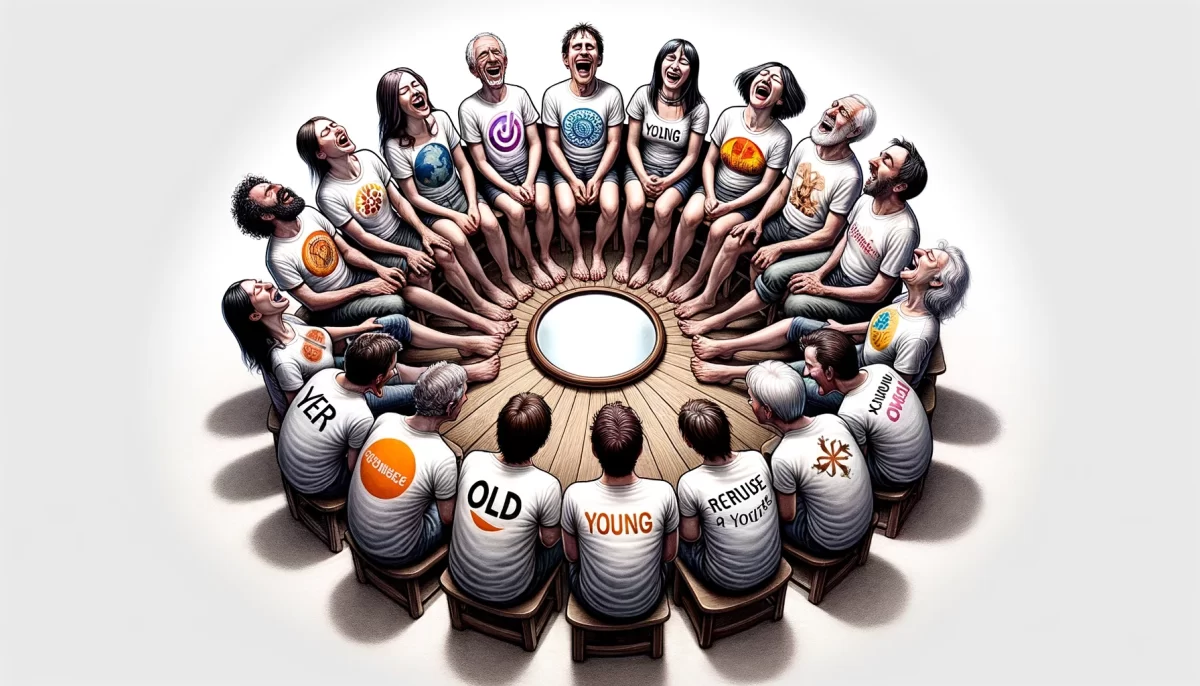
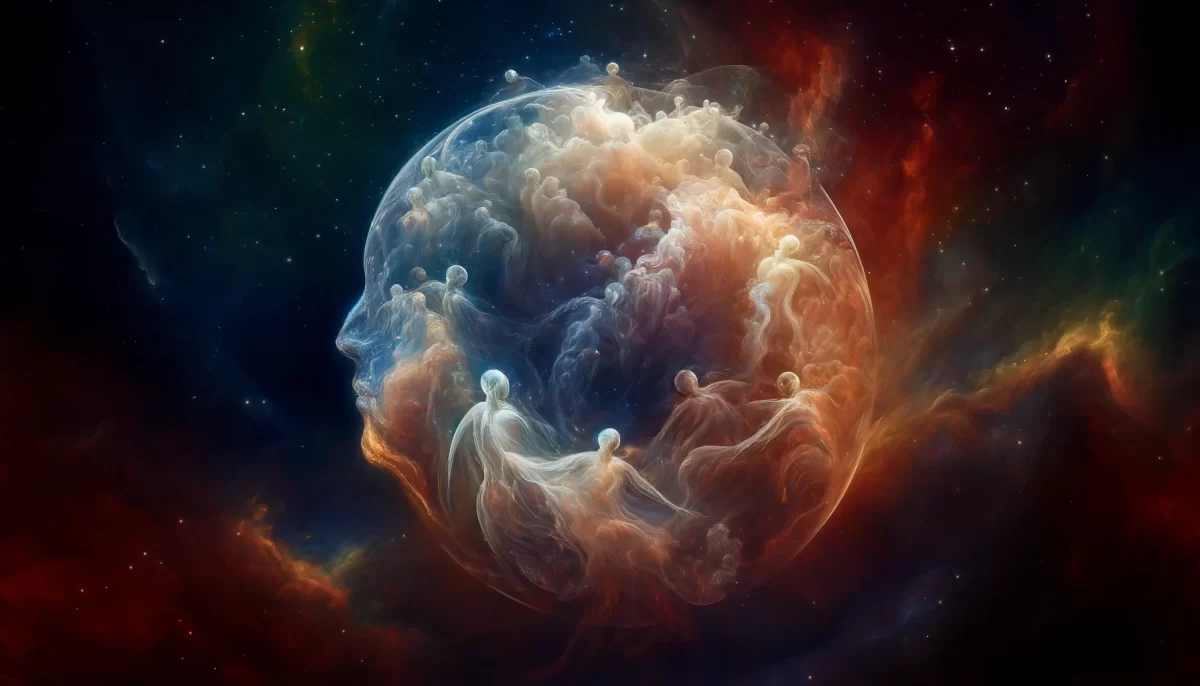
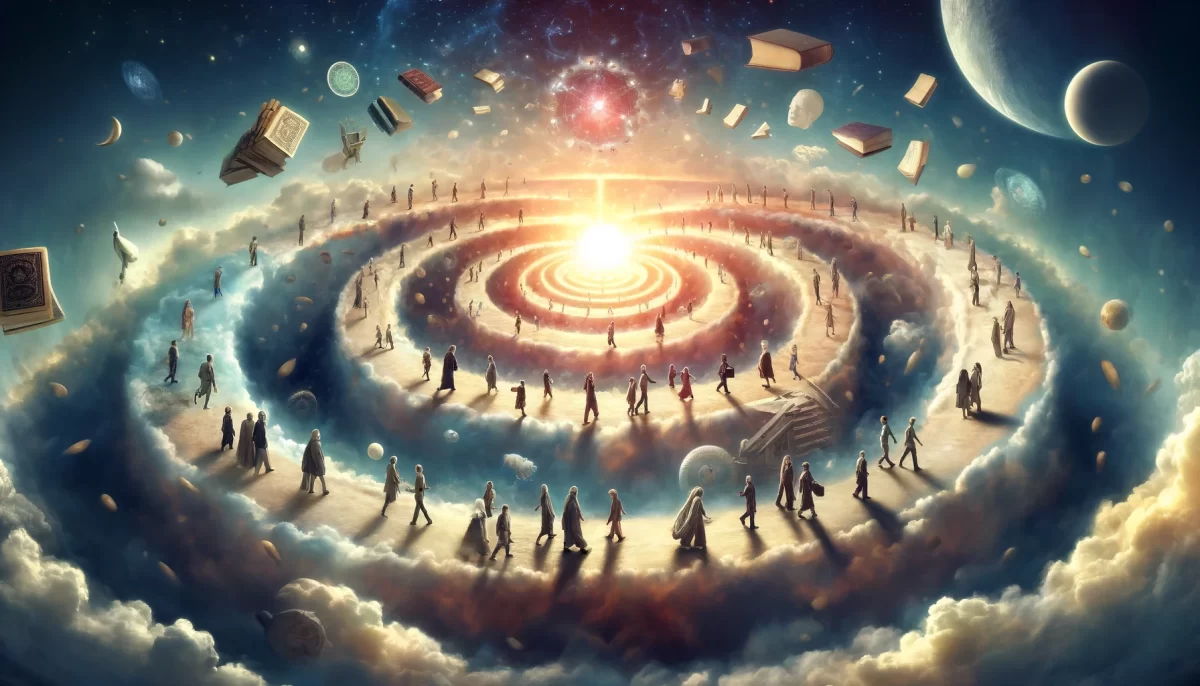

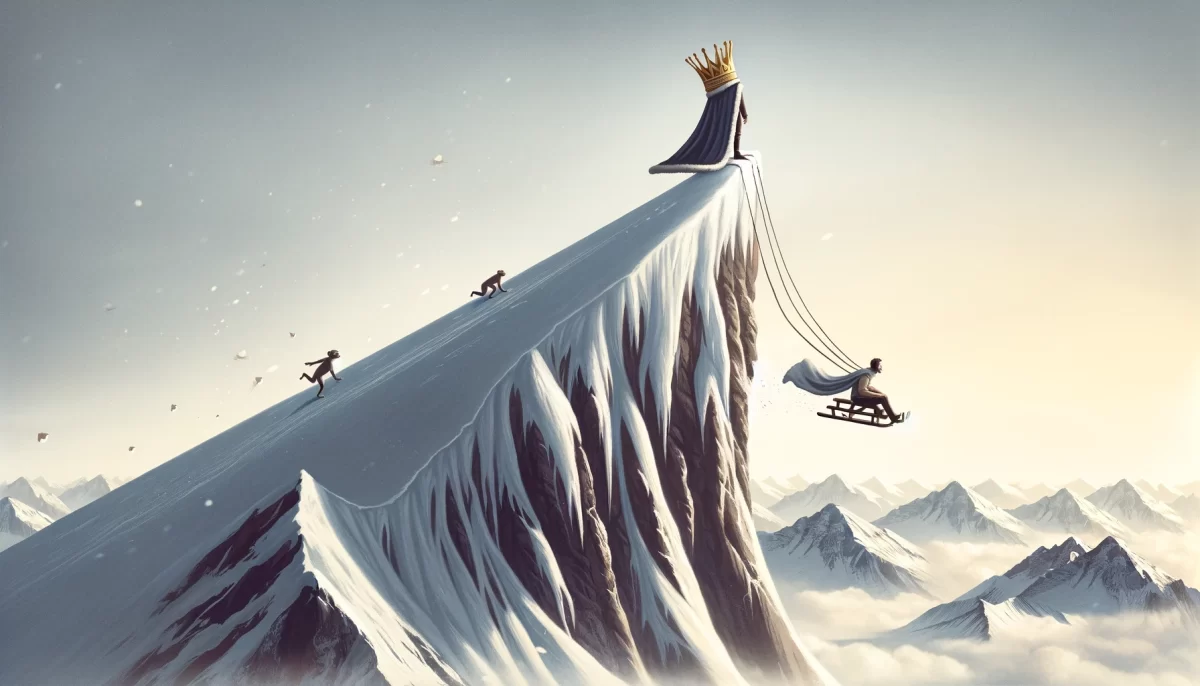
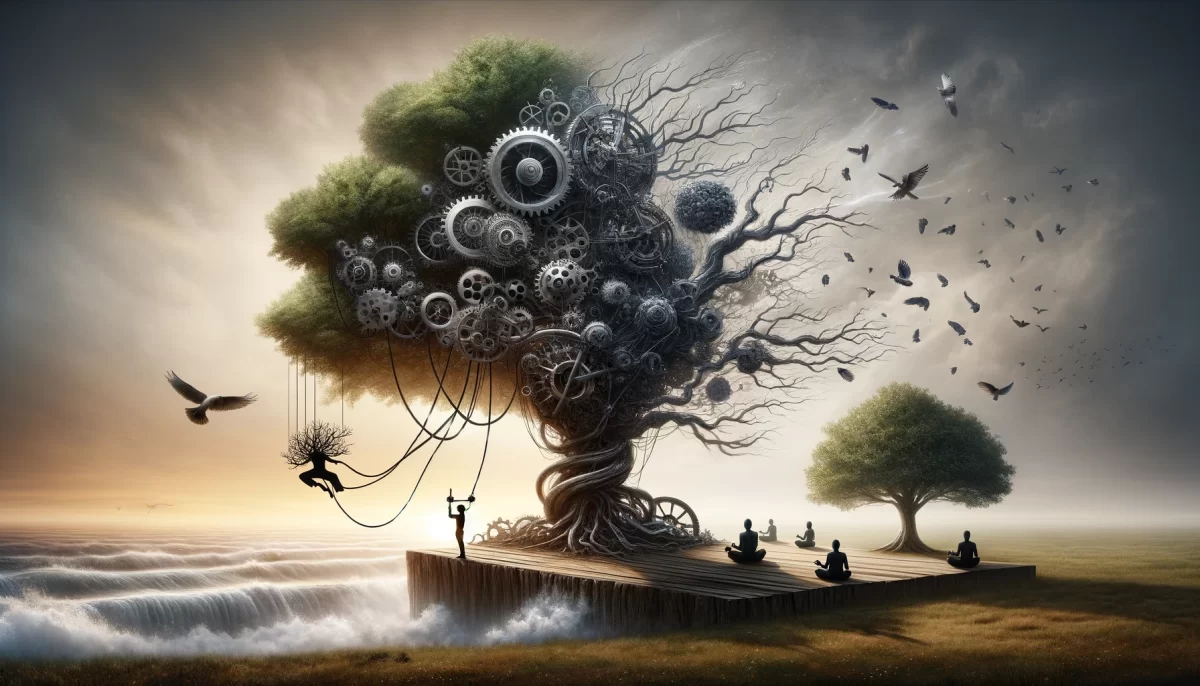

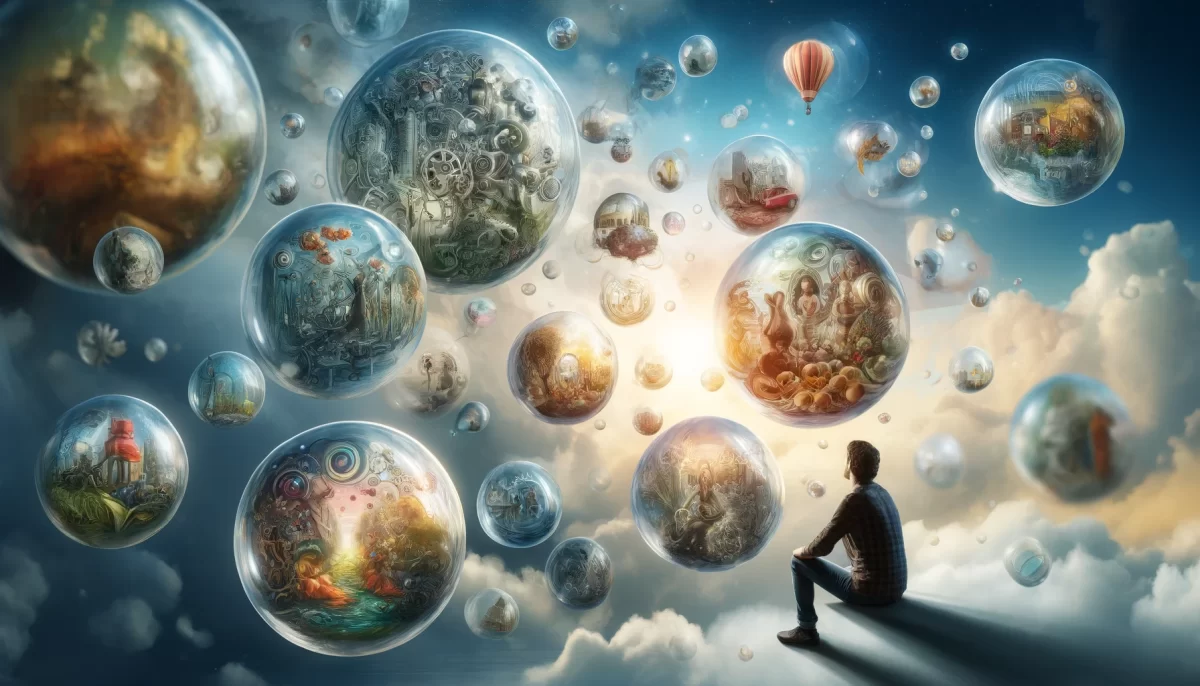
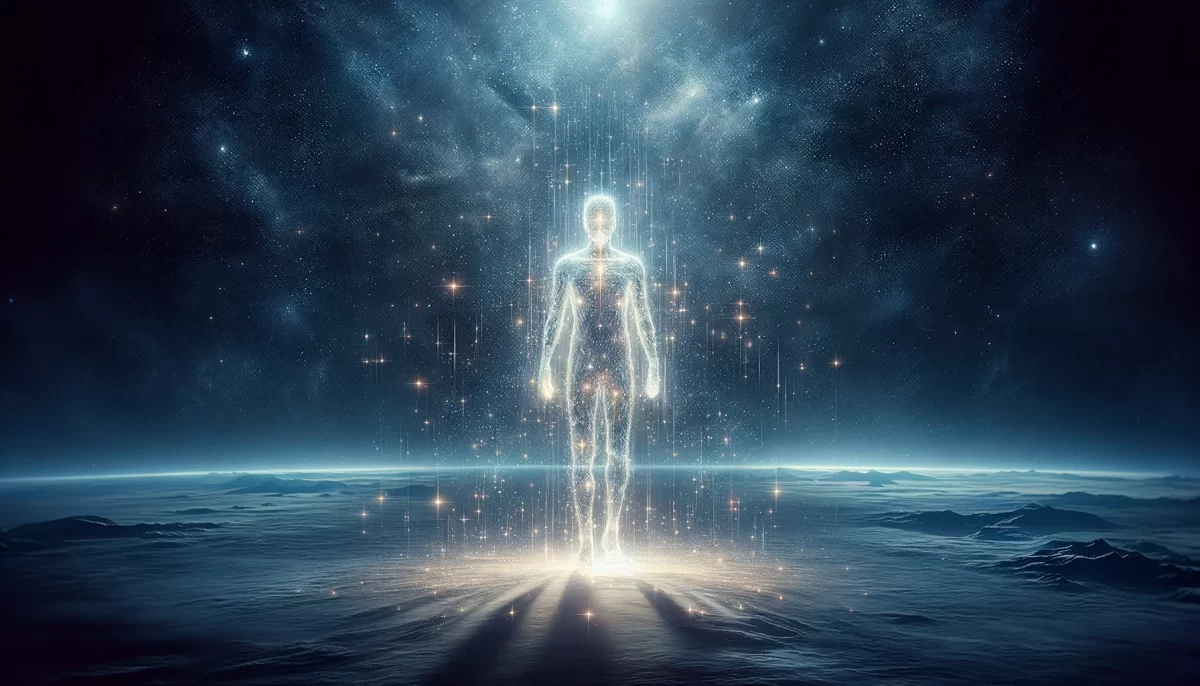




Leave a Reply